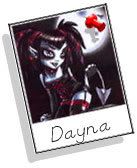Choosing Your Religion
Friday, March 02, 2007
 You can thank my hero, Guy Gavriel Kay for this post.
You can thank my hero, Guy Gavriel Kay for this post.I'm a fantasy writer. All of us 'shades' have done at least one paranormal, all of us have written a fantasy. These stories involve some variety of worldbuilding.
The one thing I haven't tackled (But Guy Gavriel Kay has) is the topic of religion. Even if religion is limitted purely to our human characters, it has to be dealt with at some point. A sudden invasion by aliens, shape shifters, vampires, or faery creatures isn't going to make the world suddenly agree on one and only one religion.
I'm looking to my next WIP, and realising Religion is going to play an integral part of the worldbuilding. So how to handle it?
Kay does a brilliant job. Three religions are established, those who worship the stars, those who worship the moon(s) and those who worship the sun. Members of each faction hate each other, with a zealouness that only seems to be inspired by religion. The relgions seem simplistic, their differences minimal--but they're an allegory for the real-world relgions of Judaism, Christianity, and Islam. Similarities that become very apparent, even to this reader, who suspends disbelief with the best of them.
This sort of religious allegory, for the record, takes some real skill to pull off. Kay manages to not criticise any single religion, which is very important, dear writers. Don't offend potential readers! :)
Conveniently, three of my current "oh, I want to write that idea next!"s are historical fantasy's. Which means pilfering worldbuilding, and consequently, religion. (which is both easier and harder than creating your own religion from scratch) I'd like to be as smart as Kay about it. I've discovered he has a few 'rules', and I'll share them with you:
1. Keep it simple: don't make the religion a long and complicated faith it will take forever to understand. This isn't to say it should be uninteresting. ;)
2. Don't make it easy. Simple is good, but easy is not. Most of the world's population has been persecuted for their beliefs. Don't pretend otherwise! This is a great source for tension, from a writer's standpoint. It makes for a terrific reading experience, as well.
3. Don't make everyone believe the same thing. (see note #2)
4. Don't make religion the only focus of the book! Religion is only one aspect of a world. While important, it can't be the only source of tension, the only source of Story.
5. Don't...and this one is so important I've saved it for last so if you only remember one, it will be this one: Do not expect your book to be a source of conversion. (this is, of course, assuming you are writing a fiction book for mass audience, not a 'bible' or evangelical pamphlet.)
At best, you can hope to educate your readers about a religion, interest them in it enough to look it up on their own--but an attempt to sway them to any kind of conversion does both the reader and writer a disservice.
It's a fine line, but try to walk it!
That's all for now, though I'm sure I'll have thoughts and clarifications throughout the week.
How about the "religious allegory" in Frank Herbert's "Dune"? I don't know how that man did it, but he managed to keep the mystic qualities of religion interspersed with the human aspect. Often, his religious heroes were leaves in the wind, blown by the moment. He certainly didn't make it simple OR easy.
Jen





1 Comments:
Oh, WELL put!
Post a Comment
<< Home